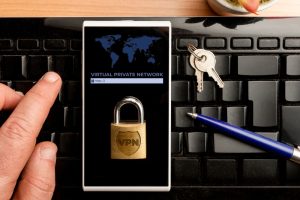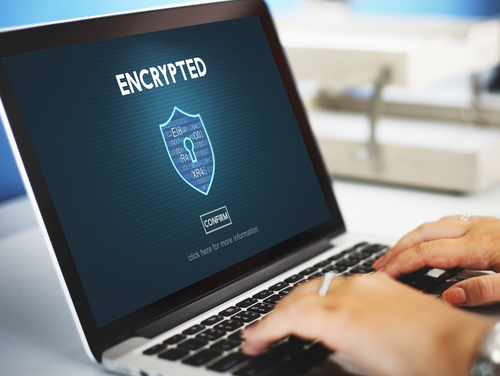We’ve all been in that uncomfortable spot, haven’t we? Casually connecting to a public Wi-Fi, only to be hit with the nagging worry of online vulnerabilities. Or that huff of exasperation when something stands between us and our beloved shows just because we’re across an invisible digital border.
The digital age is a double-edged sword – it offers boundless opportunities but also comes with privacy and security hurdles that sometimes make us feel like we’re walking on cyber eggshells.
Don’t fret; you’re not alone in feeling this way. We’ve put on our virtual boots and waded through the murky waters of internet safety to find solid ground for you. It turns out, VPN usage isn’t just widespread—it’s become a daily routine for countless people looking for peace of mind online (ourselves included).
This guide is brimming with tips harvested from extensive research and lived experiences, all aimed at fortifying your presence on the web. Discover how a reliable and secure VPN can act as your invisibility cloak against those snoopy intruders lurking in cyberspace.
Brace yourself – it’s time for some real talk about securing your personal data. Let’s join forces and boost your cyber defenses!
Key Takeaways
- A VPN, or Virtual Private Network, encrypts and secures your internet traffic, offering enhanced online privacy and protection against cyber threats.
- Using a reliable VPN allows you to change your IP address, access geo-restricted content, and browse the web safely on public Wi-Fi networks.
- While using a VPN may result in slower internet speeds and additional costs for premium services, understanding how VPNs work can help make an informed decision that aligns with your online privacy needs.
What is a VPN and Do I Need One?
A VPN is a Virtual Private Network that allows you to securely encrypt and transmit your internet traffic through a private network, providing advantages like enhanced online privacy and improved security.
If you value your online privacy and want to protect yourself from potential cyber threats, then using a VPN is highly recommended.
Virtual Private Network (VPN)
We use a Virtual Private Network, commonly known as VPN, to boost our online privacy and security. It creates a secure tunnel for our data on the internet, shielding it from prying eyes.
This technology encrypts all information leaving our devices until it reaches its destination, making it near-impossible for hackers or even Internet Service Providers (ISPs) to read.
By connecting to a VPN server, we change our IP address and conceal our real location. We can then browse the web without worrying about anyone tracking us or collecting data about our online activities.
It’s like having an invisibility cloak that also acts as armor against cyber threats—a double dose of protection every time we step into the digital world.
Advantages of using a VPN
Using a VPN provides enhanced online privacy and security, allowing us to browse the internet with confidence. Our data is encrypted, shielding it from potential cyber threats and unauthorized access.
With our IP address concealed, our online activities remain anonymous, safeguarding against tracking and monitoring. Additionally, we can securely connect to public WiFi networks without fear of data interception or hacking attempts.
Moreover, a VPN enables us to bypass geographic restrictions, accessing content that may be restricted in certain regions. This freedom allows for seamless streaming and browsing irrespective of location.
By leveraging the advantages of using a VPN, we ensure a secure and protected online experience.
How Does a VPN Work?
A VPN securely encrypts internet traffic, changes your IP address and location, bypasses internet restrictions, and protects against cyber threats.
Securely encrypts internet traffic
A VPN securely encrypts internet traffic, creating a secure tunnel that shields your online activities from prying eyes. This encryption process scrambles the data being transmitted, making it unreadable to anyone who might intercept it.
By doing so, a VPN ensures that sensitive information such as passwords, financial transactions, and personal communications remain protected from potential cyber threats. As a result, users can browse the internet with peace of mind knowing that their data is secure and private.
With its robust encryption protocols, a VPN offers an additional layer of security for your online activities. This feature not only safeguards sensitive information but also provides anonymity by concealing your actual IP address while browsing the web or using online services.
Changes IP address and location
When using a VPN, our IP address and location change to that of the VPN server we connect to. This feature allows us to access content that may be restricted in our actual location and helps protect our privacy by masking our true IP address from prying eyes.
By changing our IP address and location, we can bypass geographic restrictions, enjoy enhanced online privacy, and secure our data connection while accessing the internet. This capability is particularly useful for those seeking to avoid censorship or safeguard their personal information from potential threats.
Bypasses internet restrictions
By changing your IP address and location, a VPN allows you to bypass internet restrictions imposed by governments, workplaces, or educational institutions. This means that geo-blocked content or websites censored in your region can be accessed with ease.
Additionally, if you’re travelling abroad and want to access services available only in your home country, a VPN can help you bypass these restrictions and enjoy seamless online experiences.
With a VPN’s ability to disguise your actual location, you can also avoid targeted ads based on your geographical location. By connecting to servers located elsewhere in the world, you gain access to content that may otherwise be restricted due to geographic limitations.
Protects against cyber threats
A VPN protects against cyber threats by encrypting your internet connection, making it difficult for hackers to intercept and access your data. It shields your online activities from prying eyes, safeguarding sensitive information such as login credentials, personal details, and financial transactions.
Additionally, a VPN conceals your IP address, reducing the risk of becoming a target for cyber attacks or identity theft. With the added layer of security provided by a VPN, you can browse the web with confidence, knowing that your connection is protected from potential cyber threats.
Benefits of Using a VPN
Using a VPN offers enhanced online privacy, improved security, access to geo-restricted content, and safe browsing on public Wi-Fi.
Enhanced online privacy
To enhance online privacy, a VPN creates a secure and encrypted connection between the user’s device and the internet. This prevents third parties from intercepting or tracking online activities, ensuring data encryption and IP address protection to safeguard sensitive information.
With a VPN, users can browse the internet anonymously, keeping their online activities private and protected from data breaches or surveillance.
Furthermore, using a VPN allows users to bypass geographic restrictions and censorship on websites by masking their true location with that of the VPN server’s location. This not only enhances online privacy but also provides unrestricted access to geo-restricted content while maintaining network protection and secure browsing.
Improved security
Enhancing online security is a top priority when using a VPN. By encrypting our internet traffic, VPNs create a secure connection that safeguards our data from potential cyber threats.
This means that we can browse the web with peace of mind, knowing that our sensitive information and personal details are protected from unauthorized access. Additionally, by concealing our IP address and location, VPNs provide an extra layer of security by reducing the risk of being targeted by malicious actors or hackers.
Moreover, using a VPN helps to avoid censorship and geographic restrictions on content, further enhancing our digital freedom while maintaining a secure online presence. With improved security measures in place through the use of a reliable VPN service, we can confidently enjoy private and protected internet access.
Access geo-restricted content
After ensuring our improved security, accessing geo-restricted content is one of the key benefits of using a VPN. By connecting to servers in different countries, you can access streaming services, websites, and content that may be blocked in your current location.
This allows you to bypass geographical restrictions and enjoy a wider range of entertainment options while maintaining your online privacy and security.
Having access to geo-restricted content enhances your internet experience by providing freedom and flexibility to explore diverse online resources without limitations on your location.
Safe browsing on public Wi-Fi
When using public Wi-Fi, it’s important to ensure secure browsing. Using a VPN on public Wi-Fi encrypts your internet traffic, protecting your sensitive information from potential hackers and cyber threats.
By concealing your IP address and location, a VPN also adds an extra layer of security when accessing the internet on unsecured networks.
By utilizing a VPN while on public Wi-Fi, you can browse the web with confidence knowing that your online activities are shielded from prying eyes and potential security breaches. It greatly reduces the risk of falling victim to malicious attacks or unauthorized access to your personal data.
Choosing a reliable VPN service for safe browsing on public Wi-Fi is essential in safeguarding your online privacy and ensuring secure data connection.

Disadvantages of Using a VPN
VPN use may result in slower internet speeds, additional costs for premium services, and the potential unreliability of some VPN providers.
Slower internet speeds
When using a VPN service, it’s important to consider that internet speeds may slow down. This happens because the data has to travel through an additional server before reaching its destination.
However, the extent of this slowdown can vary depending on the quality and capacity of the VPN provider’s servers, your actual internet speed, and the distance between you and the server you’re connecting to.
It’s essential to choose a reputable VPN service with high-speed servers in locations relevant to your needs.
While slower internet speeds are a potential downside of VPN use, they can be mitigated by selecting a reliable provider with advanced infrastructure. Additionally, some premium providers offer features like split tunneling which allows selected traffic to bypass the VPN connection for faster access.
Additional cost
While some VPNs are available for free, it’s essential to be aware that many reliable and feature-rich options come with a cost. It’s crucial to consider the additional expense when choosing a VPN service, especially if you require advanced features such as higher data limits, faster connection speeds, or access to servers in multiple countries.
The monthly or annual subscription fees associated with premium VPN services ensure robust security measures and reliable performance, providing peace of mind while browsing the internet.
Additionally, paid VPNs often offer better customer support and more advanced encryption protocols than their free counterparts. Considering the potential risks associated with using a free VPN service such as weaker encryption standards and data logging concerns, investing in a reputable paid VPN can significantly enhance your online privacy and security.

Some VPN providers may not be reliable
When considering a VPN service, it’s important to be mindful that some providers may not be reliable. This can manifest in various ways, such as inconsistent connection speeds, inadequate security measures, or even potential data breaches.
It’s crucial to conduct thorough research and check user reviews before committing to a VPN provider. Additionally, opting for well-established and reputable VPN services may help mitigate the risks associated with unreliable providers.
Choosing a trustworthy VPN provider is essential to ensure the protection of your online privacy and security. Taking the time to evaluate different options based on their track record and customer satisfaction can ultimately lead to a more secure and reliable VPN experience.
Conclusion
In conclusion, we hope this guide has shed light on the importance of using a VPN to safeguard your online privacy and security. By understanding how VPNs work and the benefits they offer, you can make an informed decision on choosing the right one for your needs.
Remember to consider factors such as encryption, server locations, and user-friendliness when selecting a VPN that aligns with your online requirements. With the right VPN in place, you can enjoy secure internet browsing while bypassing geographic restrictions and protecting yourself from potential cyber threats.

